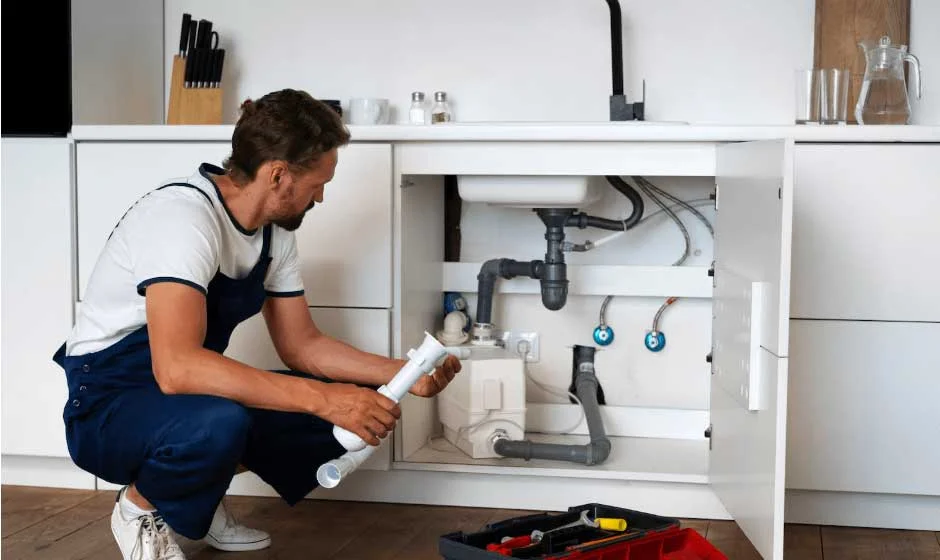Improving the efficiency of your plumbing system is one of the most effective ways to enhance your home’s comfort, reduce water waste, and prevent unnecessary wear on pipes and fixtures. An efficient plumbing system ensures smooth water flow, minimizes leaks, and supports the long-term performance of appliances and fixtures you rely on every day. Many homeowners underestimate the amount of water plumbers in Quincy, MA,and energy that can be wasted due to outdated fixtures, unnoticed leaks, and inefficient water-heating methods. By understanding how your plumbing system works and implementing simple improvement strategies, you can lower your utility bills, extend the lifespan of your equipment, and maintain a healthier, more reliable household system. A focus on efficiency also contributes to environmental responsibility, as it reduces water consumption while maintaining convenience and comfort.
Upgrading Fixtures and Improving Water Flow
One of the most impactful ways to enhance plumbing efficiency is by upgrading outdated fixtures that use more water than necessary. Older faucets, showerheads, and toilets often consume significantly more water than modern, efficient models. Upgrading to low-flow fixtures helps reduce water usage while still providing strong performance. Additionally, checking for leaks around sinks, toilets, and tubs ensures that water is not being lost through worn seals or loose connections. Even small leaks can waste hundreds of gallons over time. Many homeowners rely on professionals such as when replacing fixtures or addressing persistent leaks to ensure the work is completed properly. Improving water flow by clearing blocked aerators, cleaning showerheads, and ensuring proper pipe pressure also contributes to efficiency. A smooth, uninterrupted flow reduces strain on appliances and fixtures, helping them perform better while using less water.
Maintaining and Insulating Your Pipes
Proper pipe maintenance plays a crucial role in enhancing plumbing efficiency. Over time, mineral deposits, corrosion, and temperature fluctuations can impact the flow of water through your pipes. Regular inspections help identify early signs of deterioration, preventing leaks or blockages that can disrupt water flow and cause damage. Flushing pipes periodically removes sediment buildup and improves performance. Another effective way to improve efficiency is to insulate exposed pipes, especially those located in basements, attics, or exterior walls. Pipe insulation helps maintain water temperature during cold weather, reducing the strain on your water heater and preventing heat loss. This not only saves energy but also reduces the time you spend waiting for hot water to reach faucets or showers. Preventing pipes from freezing is another key benefit of insulation, helping protect your plumbing system from damage during colder months. Proper insulation ensures that water flows more efficiently and reduces unnecessary pressure on the system.
Improving Water Heater Efficiency
Because water heating accounts for a large portion of household energy usage, improving water heater efficiency is crucial for boosting overall plumbing performance. Flushing your water heater at least once a year removes sediment buildup that can reduce heating efficiency and cause the heater to work harder than necessary. Adjusting the thermostat to a moderate temperature setting reduces energy consumption while maintaining a comfortable hot water temperature. For tank-style systems, adding insulation around the tank can prevent heat loss and improve performance. Homeowners may also consider installing a tankless water heater for more efficient, on-demand heating. Regardless of the type, regular maintenance ensures consistent operation and reduces the likelihood of sudden breakdowns. Ensuring that the water heater is correctly sized for your household also improves efficiency, preventing the system from overworking or failing to meet demand. A well-maintained water heater contributes significantly to overall plumbing efficiency and long-term cost savings.
Managing Water Pressure and Preventing Stress on Pipes
Water pressure plays a crucial role in determining the efficiency of your plumbing system. Excessive water pressure can lead to pipe damage, leaks, and premature wear on fixtures, while low pressure often indicates blockages or pipe restrictions. Installing a pressure regulator helps maintain optimal pressure levels throughout the home. This reduces stress on the plumbing system and extends the lifespan of fixtures and appliances. Checking pressure periodically helps identify problems early.
Additionally, maintaining clean, unobstructed drains helps water flow smoothly, thereby reducing the risk of clogs that can slow drainage and cause backups. Using drain screens, avoiding the disposal of grease in sinks, and periodically flushing drains with hot water help maintain efficiency. Preventing clogs reduces pressure buildup inside pipes and minimizes the need for disruptive repairs. Maintaining balanced water pressure ensures the entire system functions smoothly and efficiently.
Creating a Regular Maintenance Routine
A consistent maintenance routine is essential for maintaining and enhancing plumbing efficiency. Regularly inspecting pipes, fixtures, and appliances helps identify minor issues before they escalate into major problems. Simple habits, such as checking underneath sinks for moisture or inspecting toilet bases for leaks, can prevent water damage and reduce wasted water. Annual or semi-annual professional inspections provide deeper insight into the system’s condition, ensuring hidden issues are addressed promptly. Clearing gutters, maintaining sump pumps, and monitoring water bills for unusual spikes also support a well-functioning plumbing system. When homeowners stay proactive and consistent, they reduce the likelihood of unexpected breakdowns, costly repairs, or water waste. Establishing a maintenance routine ensures long-term efficiency, smooth daily operation, and peace of mind.
Improving the efficiency of your plumbing system requires a combination of upgrading fixtures, maintaining pipes, optimizing water heater performance, and monitoring water pressure. By adopting these strategies, homeowners can reduce water waste, lower energy costs, and extend the lifespan of their plumbing system. Regular maintenance and thoughtful upgrades help prevent unexpected problems and maintain reliable performance throughout the home. A more efficient plumbing system not only enhances comfort but also supports sustainable living and long-term property value. With the right approach, homeowners can enjoy a dependable and efficient system that meets their daily needs while conserving resources and reducing unnecessary expenses.






